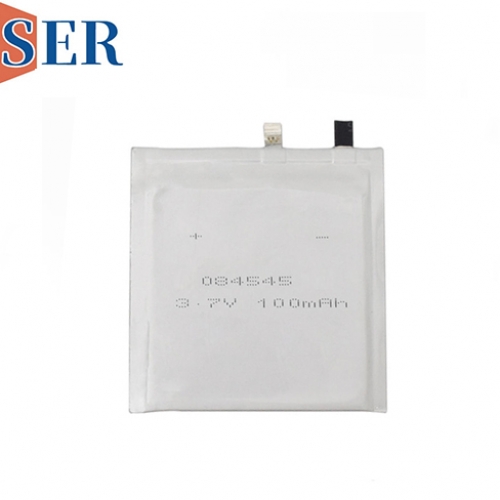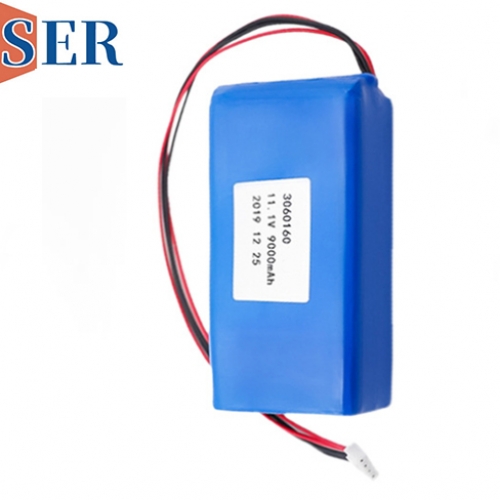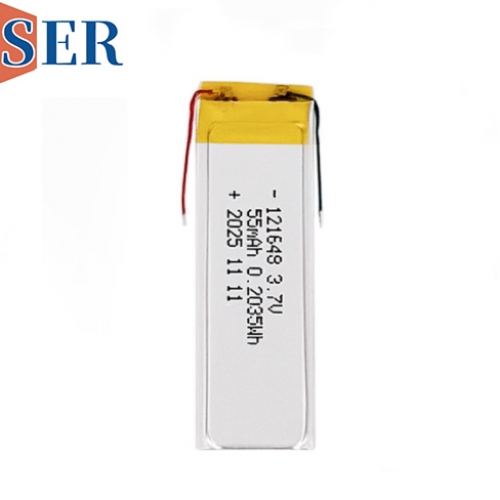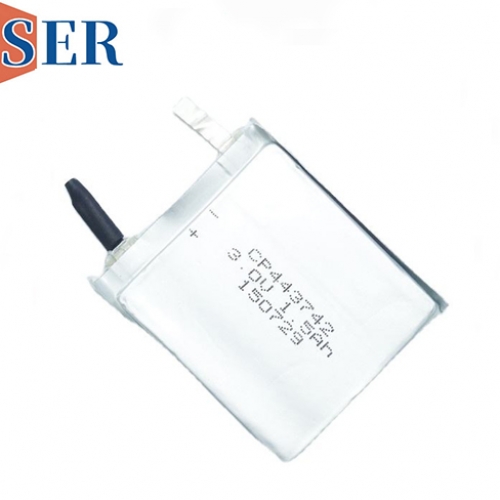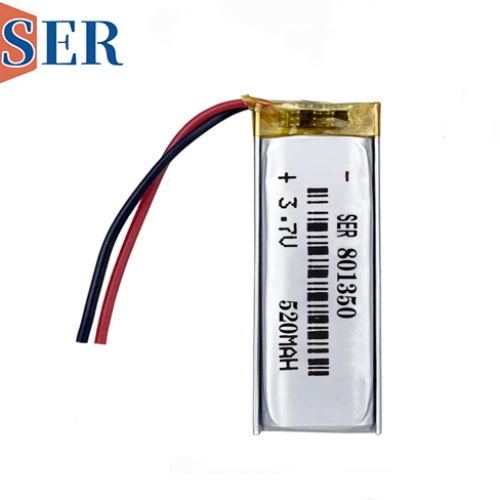Lithium Pouch Battery 702035 and Lithium-Polymer Batteries in GPS Tracking Devices
Lithium Pouch Battery 702035 and Lithium-Polymer Batteries in GPS Tracking Devices
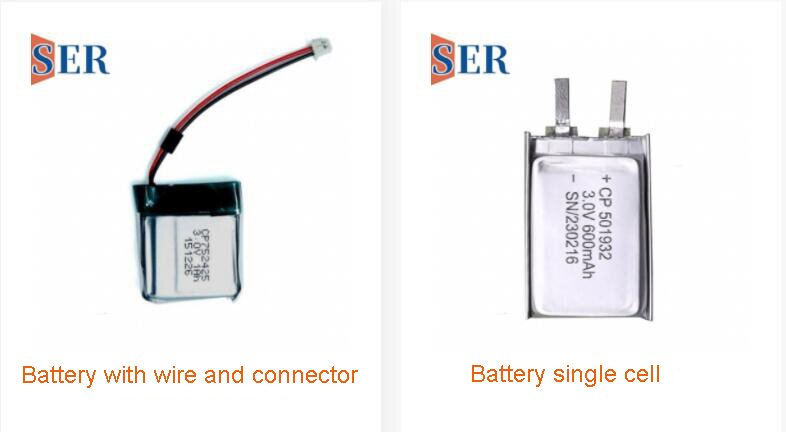
Introduction
In the realm of modern technology, GPS tracking devices have become indispensable tools for various applications, ranging from personal safety and asset tracking to fleet management and wildlife conservation. These devices rely heavily on energy-efficient and reliable power sources to ensure continuous and accurate tracking. Among the various battery types available, lithium-based batteries, particularly lithium pouch batteries (such as the 702035 model) and lithium-polymer batteries, have emerged as prominent choices due to their high energy density, long cycle life, and compact form factor. This article delves into the specifics of lithium pouch battery 702035 and lithium-polymer batteries, examining their characteristics, advantages, and applications within GPS tracking devices.
Lithium Pouch Battery 702035: An Overview
The lithium pouch battery 702035 is a type of lithium-ion battery that is enclosed in a flexible pouch-like casing, as opposed to the rigid cylindrical or prismatic cases of traditional lithium-ion batteries. This design allows for greater flexibility in terms of shape and size, making it an ideal choice for space-constrained applications such as GPS tracking devices.
Characteristics of Lithium Pouch Battery 702035
Dimensions and Capacity: The 702035 designation typically refers to the battery's physical dimensions, which are approximately 70 mm in length, 20 mm in width, and 3.5 mm in thickness. The exact capacity can vary depending on the manufacturer and cell chemistry, but typical capacities range from several hundred mAh to a few thousand mAh.
Flexible Packaging: The pouch casing is made of aluminum laminate, which is both lightweight and durable. This flexible packaging allows for easier integration into various devices, providing designers with greater freedom in terms of shape and size.
High Energy Density: Lithium-ion batteries, including pouch batteries, offer high energy density, meaning they can store a lot of energy in a relatively small and lightweight package. This is particularly beneficial for GPS tracking devices, which require long operational life without excessive weight or bulk.
Flat Discharge Curve: Lithium pouch batteries exhibit a relatively flat discharge curve, meaning they maintain a consistent voltage output over a wide range of states of charge. This ensures stable performance and reliability in GPS tracking devices.
Advantages of Lithium Pouch Battery 702035
Compact and Lightweight: The flexible packaging of lithium pouch batteries allows for a more compact and lightweight design, which is crucial for GPS tracking devices that need to be portable and discreet.
High Cycle Life: Lithium-ion batteries, including pouch batteries, have a long cycle life, which means they can be charged and discharged numerous times without significant degradation in performance. This is essential for GPS tracking devices that may require continuous operation over extended periods.
Safety Features: Modern lithium pouch batteries are equipped with various safety features, such as thermal fusing and overcharge protection, to prevent potential hazards such as thermal runaway and explosion.
Customizable: The flexible packaging of pouch batteries allows for customization in terms of shape, size, and capacity, enabling designers to tailor the battery to the specific needs of their GPS tracking device.
Lithium-Polymer Batteries: An In-Depth Look
Lithium-polymer batteries (Li-Po batteries) are a subset of lithium-ion batteries that use a polymer electrolyte instead of the liquid electrolyte used in traditional lithium-ion batteries. This difference in electrolyte type leads to several advantages, making lithium-polymer batteries a popular choice for various applications, including GPS tracking devices.
Characteristics of Lithium-Polymer Batteries
Polymer Electrolyte: The use of a polymer electrolyte eliminates the need for a separate casing to contain the liquid electrolyte, which simplifies the battery's construction and reduces its overall weight.
Flexible Design: The lack of a rigid casing allows for greater flexibility in terms of shape and size, enabling designers to create batteries that fit perfectly into the available space within GPS tracking devices.
High Energy Density: Like other lithium-ion batteries, lithium-polymer batteries offer high energy density, providing long operational life without excessive weight or bulk.
Fast Charging: Lithium-polymer batteries can be charged at higher rates compared to some other battery types, allowing for quicker recharge times, which is beneficial for GPS tracking devices that may require frequent charging.
Advantages of Lithium-Polymer Batteries
Lightweight and Compact: The polymer electrolyte eliminates the need for a heavy casing, resulting in a lighter and more compact battery. This is particularly advantageous for GPS tracking devices, which need to be as discreet and portable as possible.
Shape Flexibility: The lack of a rigid casing allows for greater flexibility in terms of shape and size, enabling designers to create custom-fit batteries that maximize the available space within GPS tracking devices.
Improved Safety: The polymer electrolyte is less prone to leakage and thermal runaway compared to liquid electrolytes, improving the overall safety of the battery.
Long Cycle Life: Lithium-polymer batteries have a long cycle life, which means they can be charged and discharged numerous times without significant degradation in performance. This ensures reliable and consistent operation of GPS tracking devices over extended periods.
Application of Lithium Pouch Battery 702035 and Lithium-Polymer Batteries in GPS Tracking Devices
The characteristics and advantages of lithium pouch battery 702035 and lithium-polymer batteries make them well-suited for use in GPS tracking devices. Below, we examine the specific applications and benefits of these battery types in this context.
Energy Efficiency and Longevity
The high energy density of lithium-based batteries allows GPS tracking devices to operate for extended periods without the need for frequent recharging. This is particularly important for devices that are deployed in remote or inaccessible locations, where regular access for charging may not be possible. The long cycle life of these batteries also ensures that they can be used reliably over an extended period, reducing the need for frequent replacement.
Compact and Lightweight Design
The compact and lightweight design of lithium pouch battery 702035 and lithium-polymer batteries is crucial for GPS tracking devices, which need to be as discreet and portable as possible. These batteries can be integrated into the device's housing without significantly increasing its size or weight, allowing for a more streamlined and user-friendly design.
Shape Flexibility and Customization
The flexible packaging of lithium pouch batteries and the lack of a rigid casing in lithium-polymer batteries enable designers to create custom-fit batteries that maximize the available space within GPS tracking devices. This allows for optimal battery placement and orientation, ensuring that the device's overall design and functionality are not compromised by the battery's presence.
Fast Charging Capabilities
The fast charging capabilities of lithium-polymer batteries are beneficial for GPS tracking devices that require frequent charging. This allows users to recharge the device quickly and efficiently, minimizing downtime and ensuring continuous tracking capabilities.
Safety and Reliability
The safety features incorporated into modern lithium-based batteries, such as thermal fusing and overcharge protection, provide an additional layer of protection against potential hazards such as thermal runaway and explosion. This ensures that GPS tracking devices remain safe and reliable, even in demanding environments or under extreme conditions.
Comparison of Lithium Pouch Battery 702035 and Lithium-Polymer Batteries
While both lithium pouch battery 702035 and lithium-polymer batteries offer numerous advantages for use in GPS tracking devices, there are some key differences between the two types that may influence their suitability for specific applications.
Packaging and Shape Flexibility
Lithium pouch batteries are enclosed in a flexible pouch-like casing, which allows for greater flexibility in terms of shape and size. This makes them ideal for applications where space is constrained and a custom-fit battery is required. Lithium-polymer batteries, on the other hand, also offer shape flexibility due to the lack of a rigid casing, but may have slightly less packaging flexibility compared to pouch batteries.
Energy Density and Capacity
Both lithium pouch battery 702035 and lithium-polymer batteries offer high energy density, but the specific capacity may vary depending on the manufacturer and cell chemistry. Generally, lithium-polymer batteries may offer slightly higher capacities for a given size and weight, making them a better choice for applications that require maximum energy storage.
Cost and Availability
The cost and availability of lithium pouch battery 702035 and lithium-polymer batteries can vary depending on the manufacturer, region, and specific requirements of the application. Generally, lithium-polymer batteries may be more expensive due to their advanced construction and materials, but this may be offset by their higher energy density and longer cycle life.
Conclusion
In conclusion, lithium pouch battery 702035 and lithium-polymer batteries offer numerous advantages for use in GPS tracking devices, including high energy density, long cycle life, compact and lightweight design, shape flexibility, and fast charging capabilities. These characteristics make them well-suited for applications where reliable and consistent tracking is required, even in demanding environments or under extreme conditions. While there are some differences between the two types of batteries in terms of packaging flexibility, energy density, and cost, both offer excellent performance and reliability for GPS tracking devices. When selecting a battery for a GPS tracking device, it is important to consider the specific requirements of the application.

